Opening videos
Luis Engel: Nimzo-Indian with 4.e3 0-0 5.Bd2

In his video analysis, Hamburg Grandmaster Luis Engel examines a highly topical variation in the Nimzo Indian. First we follow the game between Magnus Carlsen and his compatriot Aryan Tari at the World Cup 2023. After the moves 4.e3 0-0 5.Bd2 c5 6.a3 Bxc3 7.Bxc3 Black targets the bishop on c3 with 7...Ne4. White's classic reply is 8.Rc1, but the new idea, which Carlsen also followed in Baku, is 8.Ne2:
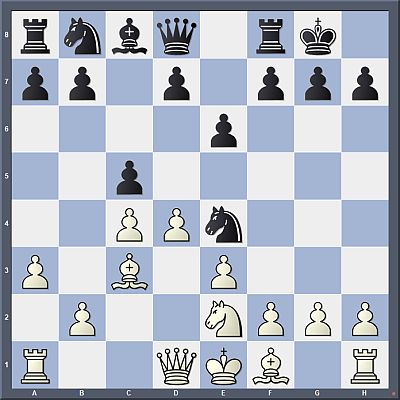
White naturally wants to take back on c3 with the knight. But since it blocks the white-squared bishop on f1, Black will delay capturing on c3 in order not to make it too easy for his opponent to complete the development. 8...Nxc3 is therefore not recommended for Black. But also after 8...d6 Black gets into trouble after 9.dxc5 - despite the symmetrical character of the position. The correct choice is 8...b6 - the bishop can then be developed either to b7 or a6. White now wins space in the centre with 9.d5 and confronts Black with the decision of how to develop his queenside. Engels explains why he considers 9...Ba6 to be the most resilient reply and analyses 10.Qd3 and Carlsen's 10.f3 – two variations, which lead to complex positions that are very unpleasant for Black to play - especially if there is a lack of preparation.
Romain Edouard: "Critical Lines in the Dragon" - Part IV: 9.g4
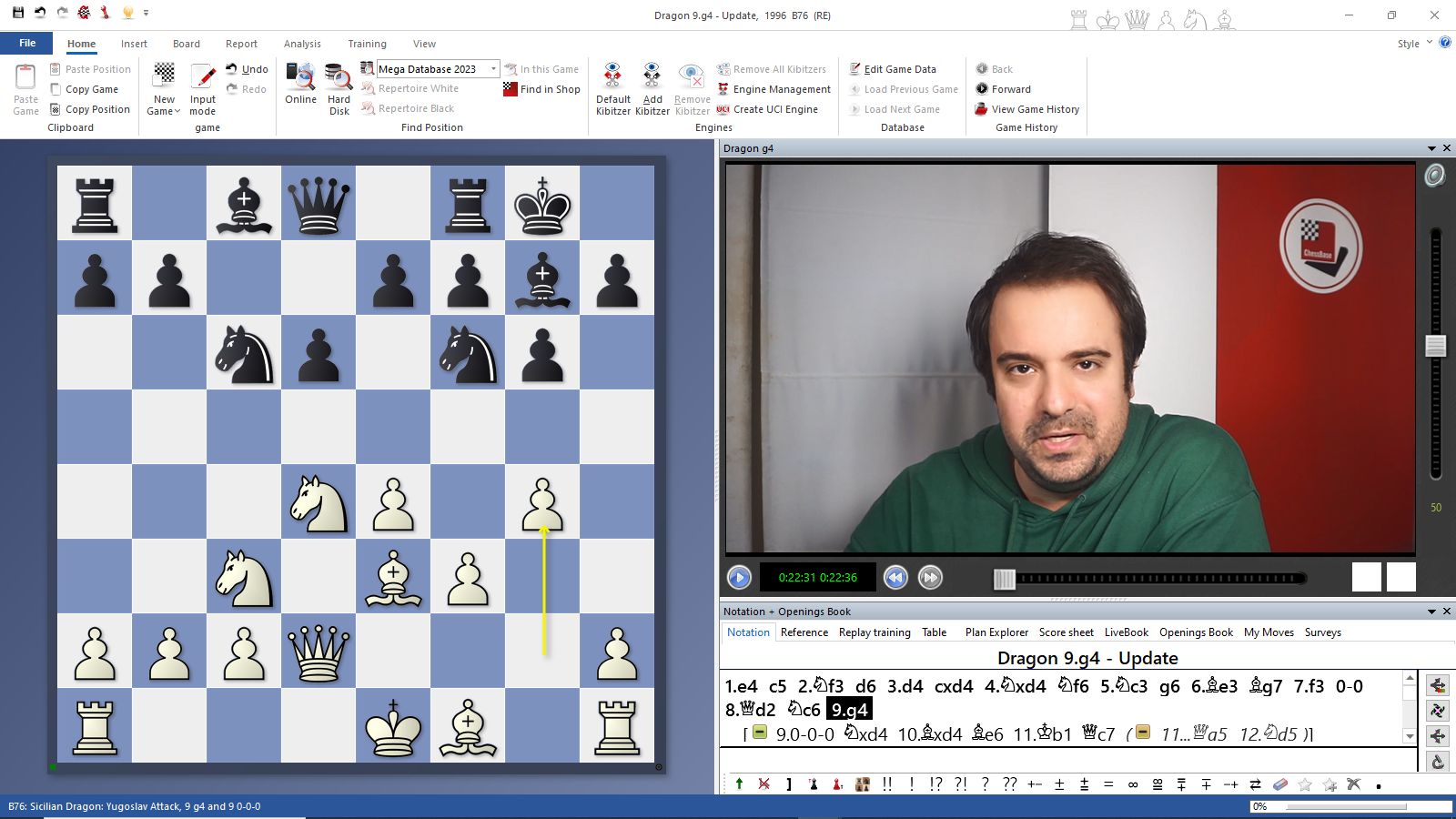
1.e4 c5 2.Nf3 d6 3.d4 cxd4 4.Nxd4 Nf6 5.Nc3 g6 6.Be3 Bg7 7.f3 0-0 8.Qd2 Nc6 9.g4
In the first three parts of his series, Romain Edouard had examined 9.0-0-0, followed by Black's advance 9...d5. The fourth and last part deals with the variations after 9.g4. The best reply here is 9…Be6, which is usually followed by 10.Nxe6 fxe6. But before Edouard goes into his - again very deep - analysis of the main line, he examines an alternative attempt by White: 10.h4 d5 11.e5 - with which Christian Bauer had surprised our author at the 2015 French Championship. Edouard shows that Black quickly equalises here with the natural continuation 11...Sd7. His video analysis is once again characterised by a successful combination of classical Dragon knowledge and modern engine analysis and is therefore highly recommended to every Dragon player!
Anish Giri, Yannick Pelletier, Viktor Moskalenko Lubomir Ftacnik, Spyridon Kapnisis, Michal Krasenkow, Romain Edouard, Adrian Mihkalchishin and many others commentate
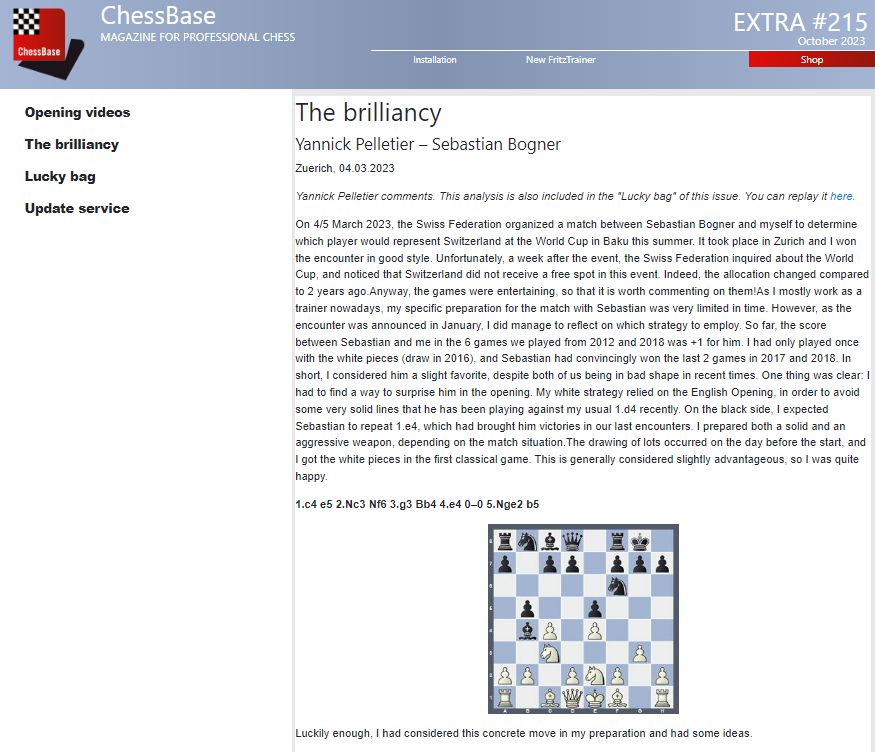
The match between compatriots Yannick Pelletier and Sebastian Bogner is one of "Pelletier's pearls" and also "The brilliancy" of this issue. It comes from a match in March this year, in which the winner was to qualify for playing in the World Team Championships for Switzerland. However, Pelletier notes, it was only after the match was over that their federation discovered that Switzerland did not receive a free spot in the event.
Excerpt from Pelletier's analysis:
"I considered Sebastian a slight favorite, despite both of us being in bad shape in recent times. One thing was clear: I had to find a way to surprise him in the opening. My white strategy relied on the English Opening, in order to avoid some very solid lines that he has been playing against my usual 1.d4 recently. On the black side, I expected Sebastian to repeat 1.e4, which had brought him victories in our last encounters. I prepared both a solid and an aggressive weapon, depending on the match situation.The drawing of lots occurred on the day before the start, and I got the white pieces in the first classical game. This is generally considered slightly advantageous, so I was quite happy.
1.c4 e5 2.Nc3 Nf6 3.g3 Bb4 4.e4 0–0 5.Nge2 b5
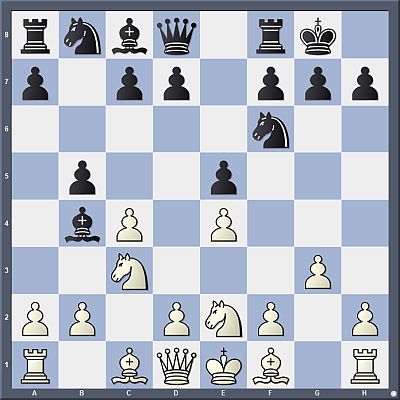
Luckily enough, I had considered this concrete move in my preparation and had some ideas.
6.cxb5 a6 7.b6 cxb6 8.Bg2 Bb7 Magnus played 8...Nc6 in an online rapid game vs Svidler in 2020. Needless to say that Sebastian's natural move was unexpected, but I felt he was on his own as well."
In addition to the brilliant game, 52 other games with detailed commentary await you in the "Lucy bag".
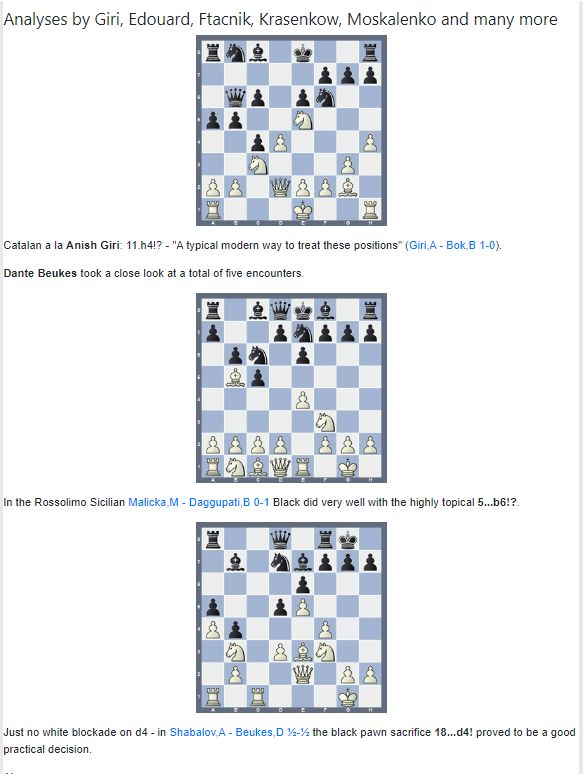
And the Update service provides over 50,000 new games for your database!
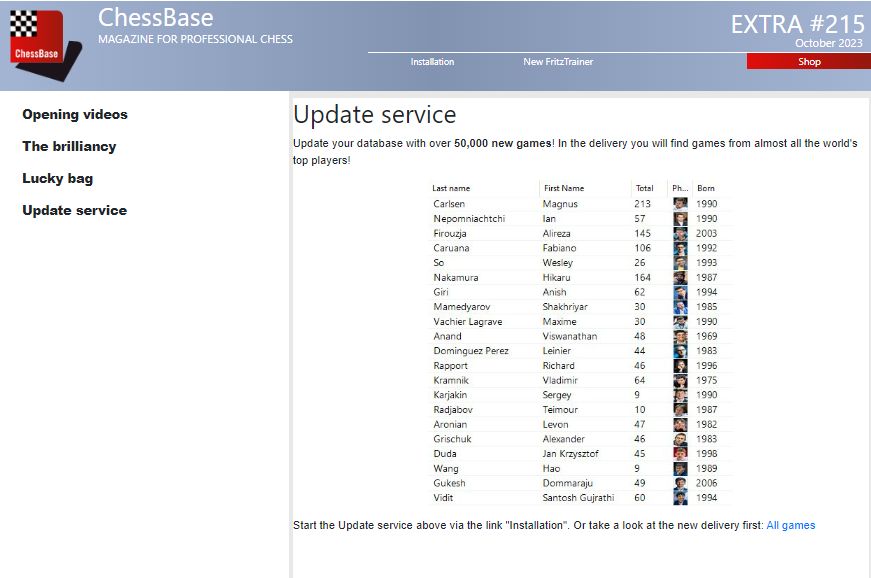
The games of the Update-Service are also included in the Mega-Update-Service 2023, which you can use with the programmes ChessBase 15/16/17 (and a corresponding subscription).








